QuestionHi,
I was wondering if you could tell me why my 3 month old springer pup is always bringing in bits of mud from the garden to the house and chewing it as well as floor mats and wallpaper.
I already have a 3 year old cocker spaniel gun dog, to which I have never had one bit of bother with.
Thanks for your help
Morris
AnswerThe most likely reason you pup is bringing in dirt and chewing / eating it is the activity is fun. Puppies love to chew and explore with their mouths. Sometimes their choices are not ours.
Here are some additional tips and links for you.
Exercise, socialization and training are critical elements to your dog's development. I would suggest that you enroll in a local puppy kindergarten to get your dog out and about and learn some skills.
I would concentrate on teaching skills that will benefit the dog and your household. This is the time to teach COME, SIT, STAY, DOWN, walking politely and more. Why wait until the dog is big and harder to handle.
Here's a link to my web site where you will find lots of tips on how to train and work with a youngster.
http://outlawchinooks.com/
http://outlawchinooks.com/articles.html
http://RileyTrainingCenter.blogspot.com
http://www.examiner.com/x-11254-Minneapolis-Dogs-Examiner
Also, here's a link for preventing biting and nipping. Also posted it below for a quick read. I know your pup is not doing this, but some of the tips also apply to inappropriate chew toys like dirt too.
Good Luck!
http://outlawchinooks.com/dog_puppy_biting_prevention.html
Dog - Preventing Puppy Biting and Nipping
Your puppy bites and nips with those needle sharp, vampire-like teeth in order to learn more about their environment. They have been practicing this skill with their litter mates since they were born and they don't understand that humans are not as durable as their fur coated family members. Pups need to learn to inhibit their bite and to be gentle with humans and eventually to not place their teeth on us at all.
Over the years, lots of people have received the advice to flip their pup on his back every time their puppy bites. This is called an alpha roll and was quite popular in the 1970's, but for most people, this is not an effective training tool. Many dogs will react badly to the alpha roll by becoming more aggressive because they now see their humans as being unpredictable, frightening and possibly even as threatening their very existence. Fortunately, there are alternatives to the alpha roll that will help your pup to learn how to have a soft mouth.
If you pup puts his mouth on you in a gentle manner, ignore it. You can teach him that teeth aren't allowed on human skin. What you are teaching now is that any bite contact should be soft. If you are petting pup and you get a bite that hurts, respond in a higher pitched voice with "Ouch" and walk away. If pup follows and continues to bite, you will want to tether pup to a solid object so you can move out of range. Wait 30 to 60 seconds and then interact in a calm fashion with your pup. If you get another hard bite, say "Ouch" and walk away. You are teaching pup that this behavior makes you go away and your clever pup will begin to understand this very quickly.
Every time pup bites hard, say "Ouch" and walk away. If pup mouths you gently, say "Good" and reward with a treat and keep on paying attention or playing with pup. You pup will quickly figure out that being gentle brings treats and continued interaction with you. This method uses the language your dog understands -- pup's littermates cease playing when the bites get too hard, and you are now speaking that same language. Puppies learn a soft mouth from their littermates, and they need 8 weeks with their dog family to understand soft mouth and proper interaction.
Once your puppy has learned the basics of gently mouthing, you can require softer and softer contact to keep playing and interacting with you until there is no mouthing allowed. Once you have taught your puppy that teeth are not acceptable, you will have effectively conditioned pup with good bite inhibition.
Basic Tips
When playing with your puppy, have a soft chew toy available to offer before pup puts teeth on your hand.
If your puppy bites when you are petting, give treats with one hand while petting with the other hand.
Plan your petting sessions when your pup is tired. A tired puppy is a good puppy.
Don't play games that involve face grabbing or pushing pup's head as these encourage biting.
Always supervise puppies and children. Children often do things wrong when a puppy bites like screaming, jumping and running -- all of which encourage inappropriate puppy behavior.

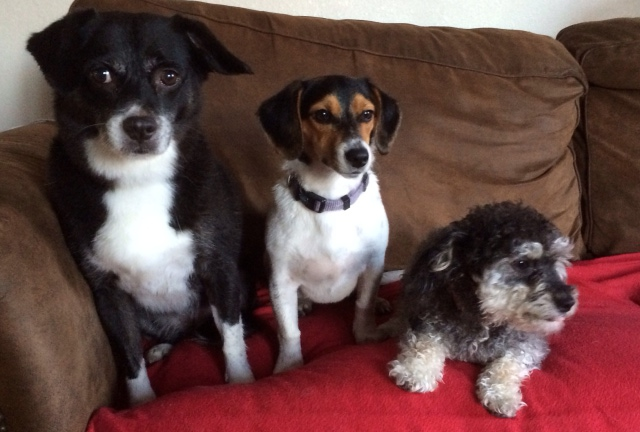 Dog aggression
Question
The 3 of them
I have 3 spayed female do
Dog aggression
Question
The 3 of them
I have 3 spayed female do
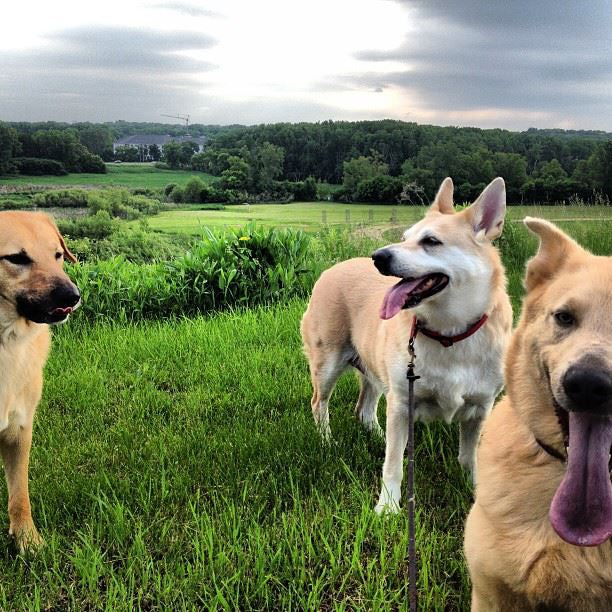 traumatic
QuestionI have a 6 lb Yorkie that is a rescue, weve had
traumatic
QuestionI have a 6 lb Yorkie that is a rescue, weve had
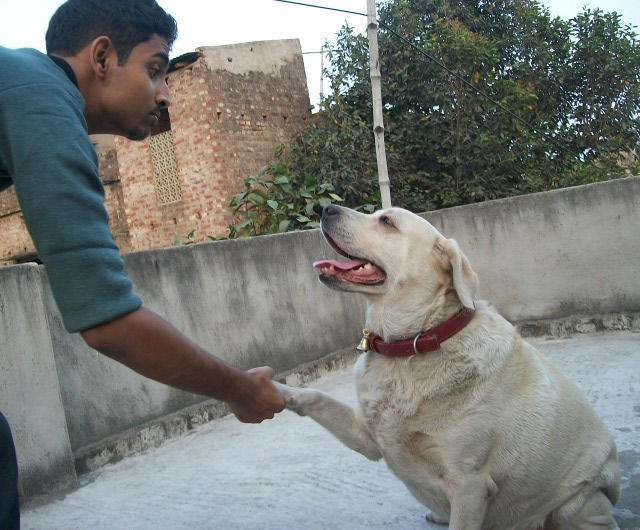 5 yr old lab fetch problem!
Question
handshake
Hello.I am Rameez from India
5 yr old lab fetch problem!
Question
handshake
Hello.I am Rameez from India
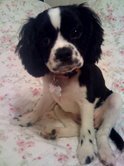 Puppy Yelping
QuestionQUESTION: Hi! I have a 6 month old Cocker
Puppy Yelping
QuestionQUESTION: Hi! I have a 6 month old Cocker
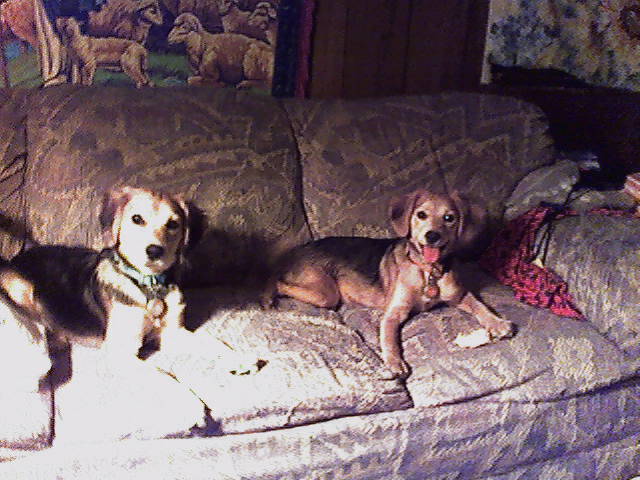 bladder issues in rescue pups
Question
collie-shepherd pups
We have had two rescued s
bladder issues in rescue pups
Question
collie-shepherd pups
We have had two rescued s